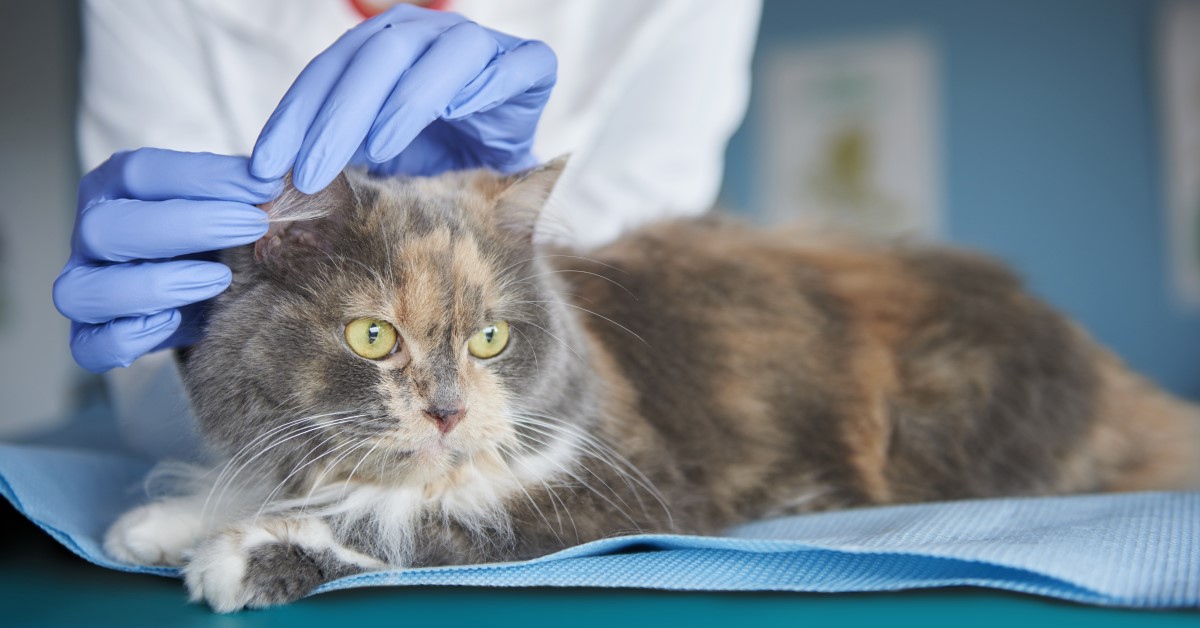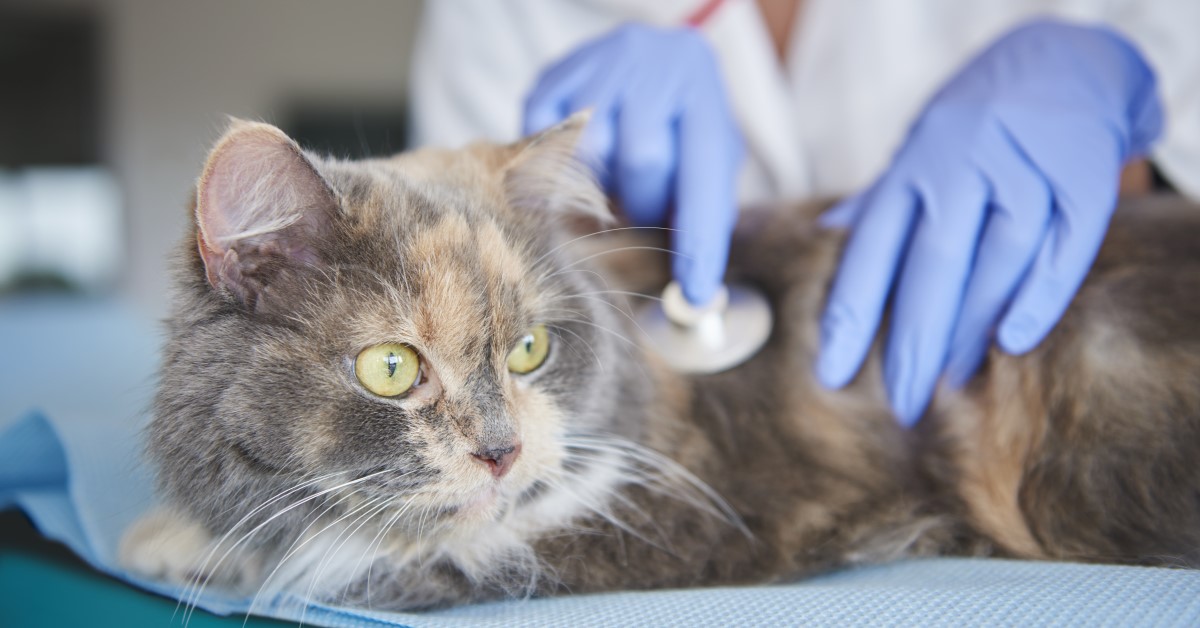Help Your Pet Get Over Ear Infections Fast
Ear infections in cats and dogs can be challenging, but recognizing the symptoms early and administering the proper treatment can help your pet heal quickly.

A cat or dog suffering from an ear infection can be a miserable experience. Between the constant scratching and pawing, your pet is suffering from pain or itchiness. When your pet has an ear infection, you only want to help your them heal quickly. Luckily, most ear infections will improve with treatment in about two weeks. Understanding the signs of an ear infection can help you recognize when your pet needs treatment and medical attention. Let’s look at some easy tips to help your pet get over ear infections fast.
Tip #1: Understand What Is Causing the Ear Infection
The first way to ensure your pet recovers from an ear infection quickly is to understand what is causing the infection in the first place. Dogs are particularly susceptible to ear infections because fluid can get trapped in their L-shaped ear canals. Over time, the fluid can harbor bacteria, leading to infections.
Some of the most common causes of an ear infection include:
- Wax and dirt build-up
- Allergies
- Excess Moisture
- Foreign Body
- Over-cleaning
- Autoimmune disease
- Thyroid disease
Determining the underlying cause of an ear infection can help you, and your veterinarian figure out the proper treatment methods and also prevent future infections from occurring.
Tip #2: Understand Your Pet
Certain breeds of cats and dogs are predisposed to ear infections, primarily due to the shape of their ear. Generally, floppy-eared dogs, like hounds, spaniels, and retrievers, are more prone to getting water and moisture trapped inside the ear canal. If you know that your dog is more likely to suffer from an ear infection, you can take the right preventative steps early and better understand the signs and symptoms of an ear infection when it first begins.
Tip #3: Predict Ear Infection Triggers
If your pet suffers from allergies, symptoms can manifest as an ear infection. Most pets with seasonal allergies will experience cyclical symptoms, often worsening in the spring and fall. In order to avoid an infection, it is best to keep your pet’s ears clean and dry, especially when allergies start to rear their ugly heads.
Tip #4: Recognize Symptoms
When an ear infection is just starting, it is essential to recognize the tell-tale symptoms early. Some of the most common symptoms associated with an ear infection include:
- Scratching
- Shaking the head
- Tilted head
- Odor
- Redness
- Discharge from ear
- Pain/whimpering when the ear is scratched or touched
A pet may have trouble balancing when an ear infection has taken a firm hold in rare cases. If the ear infection has progressed to the entire body, your pet may experience lethargy and lack of appetite.
Tip #5: Seek Veterinary Care Quickly
One of the best ways to help your pet recover from an ear infection quickly is to seek medical attention at the first signs of infection. The sooner you can get your pet examined and put on medication with a treatment plan, the sooner your pet can recover. Most ear infections require prescription medicine, so don’t delay getting your pet to the veterinarian’s office.
Tip #6: Follow Treatment As Prescribed
Usually, a veterinarian will prescribe medication to help your pet recover from an ear infection. The standard treatment is a combination of antibiotics and anti-inflammatory medicines. These medications must be administered for the entire prescribed course, usually two weeks. Although your pet may show signs of improvement after seven days, it is vitally important to stay the course and complete the treatment as prescribed. Failure to finish the prescription can cause the ear infection to reoccur.
Tip #7: Prevention
Understanding that excess moisture can trigger an ear infection is the first step to ensuring your pet stays happy and healthy. Follow good practices to keep your pet’s ears dry and clean. Some great ways to prevent an ear infection include:
- Clean - Using an ear wash specifically designed for pets, regularly clean your pets’ ears. You’ll want to clean the ears about once a week, removing any wax or debris build-up.
- Dry - After your pet has gone swimming or taken a bath, completely dry your pet’s ears. Trapped water inside the ear canal can lead to an ear infection.
- Treat Allergies - Because allergies can quickly lead to ear infections, treat your pet’s allergies with over-the-counter medication or prescription medication. Pay close attention to the seasons when allergies are the worst.
- No Cotton - When cleaning your pet’s ears, try to avoid using cotton materials, like cotton balls or paper towels. These materials can leave behind tiny fibers in the ear canal, further leading to infection. Cotton swabs are acceptable if used carefully.
Ear infections can be challenging for your pet, so ensuring your pet recovers and heals quickly from infection is vital. With the proper steps to prevent and recognize an ear infection early, coupled with the ability to treat and administer medication properly, you’ll be able to help your pet get over an ear infection quickly and easily.
Ready to start saving money on pet wellness care?
Then take a look at Mint Wellness, the pet wellness plan that provides fast reimbursement on routine pet care. Save on vaccinations, wellness exams, preventatives, dental, and more!
Learn More


